If I absolutely must vacation in the summer, I try to plan on avoiding the heat. So, this year my husband and I traveled to various locales in South America, literally hauling off to a different hemisphere to beat the heat/humidity and visit places we’d never been, and the vacation turned out to be more bookish than usual. I always visit bookstores wherever I go even if I don’t speak the language well because foreign countries seem to have a lot of fun with book culture. Look at this bookstore in Buenos Aires was a palatial theater turned into a beautiful store - the cafe was on stage.
But what made the trip most bookish of all was that on almost every weekday of my trip, the New York Times was releasing another 20 of their Best 100 Books of the 21st Century. I’d wake up every morning and check the updated list, and the list was…pretty good! I’ve read 54 of the 100, and maybe unsurprisingly, like every other bookish person with a substack, I have some thoughts about the list in general.
I think it was great that they never defined what “best” meant for the voters or the readers - enduring, important, influential, meaningful, who knows? On the other hand, I think it made the diverse cohort of participants lean toward serious literary fiction or grave nonfiction. The act of listing is fun, but the content of this one is not very. Don’t get me wrong; it’s a great list of literature that reflects the first quarter of this century well. But whimsical and light it is not.
Combining fiction and nonfiction was a smart move, I think, but it was predictably disappointing to see how many genres weren’t appearing with any frequency, especially since most of these genres are the ones that sell and get people reading and talking. Romance, fantasy, mysteries, and thrillers, where are you? Not a lot of poetry or straight up gay lit either.
Regarding the above, I’m very glad they just got the data for the list and let the books lay as played. But it would be really cool to see some disaggregated data on the top 10 or 20 in a bunch of different genres. Let the people know!
I love the individual lists from folks brave enough to reveal their selections, especially the ones that contained hardly any books that landed on the final list, and the BookRiot podcast just did a fantastic episode with Gilbert Cruz from the Book Review to chat about how the list was put together.
I was not bothered by authors having multiple selections on the list, but it surprised me that certain authors were missing altogether. Namely: Lauren Groff, James McBride, Jhumpa Lahiri, Sally Rooney, Eleanor Catton, Haruki Murakami, and Megan Abbott.
Not that I think all of these books belong on a list of the Best of the Century necessarily, but some of the most talked about books - the books we know people were reading because they were, to paraphrase Beyonce, the bitches who caused all that conversation - were nowhere to be found. Namely: Gone Girl, A Little Life, The Kite Runner, The Song of Achilles, The Girl with the Dragon Tattoo, Dept. of Speculation, Normal People, and more.
Interesting that a collection of books released in the 60s and 70s (The Copenhagen Trilogy) made the list just because its translation to English was published in the last quarter century. By that logic, does that mean that a recent translation of The Iliad or Les Miserables would be eligible?
I started collecting a list of my favorite books from the century so far on a word document that kept going and going and going. I finally settled on 2 lists of 10 that I would have submitted to the NYT were I asked. I cheated because I could, and my exclusion from the chosen list of luminary participants means that I have the freedom to break all the rules I want. Here they are, without the hundred or so alternates that could have easily been switched out for just about any of these books depending on my mood. I’m interested in hearing about yours via email or comment.
Oh yeah, I’ve also read some books lately.
THE LIBRARY IS OPEN
James
by Percival Everett (2024)
I’ve never enjoyed reading Mark Twain in a classroom setting, so I was certainly not going to do the emotional homework of rereading The Adventures of Huckleberry Finn just to participate in the book nerd event of the year: James, by Percival Everett. Perhaps a reread would have rendered my experience richer or I may not have missed some of the Easter Eggs hidden throughout, but I’ll never know. Luckily the novel does not require too much familiarity with the original text to appreciate the modern retelling from the enslaved character’s point of view as a brilliant work and a reason to celebrate Everett as one of our most prolific and versatile wordsmiths working today.
James (née Jim) is our narrator as we retrace the steps of the journey he and Huck Finn went on while escaping their brutal lives at a home in Missouri after they’re falsely implicated in the commission of a crime. But this version fleshes out James as a person with ambition to write and express himself, to be a good husband and father, to fulfill himself with work of his own volition. In other words, he’s a human. The heartbreaking/hilarious manner in which he and other enslaved folks code switch their language in front of white people is a high wire act, and observations about minstrelsy and well meaning white folks carve with a scalpel.
I was worried that the book might not stick the landing, but of course it did. I’m not really saying anything else that others haven’t. This book is great. Pretty much everybody thinks so. It’s going to win a whole raft-load of awards. You should read it because it’s gravely important and somehow a whole lot of fun at the same time.
Read it if you like: modern retellings, revenge stories, Mark Twain, improving your experience with high school reading selections, acknowledging Percival Everett as a wide-ranging genre of his own.
The Husbands
by Holly Gramazio (2024)
My first reaction upon hearing the concept for this novel - a woman’s fiancé goes up into the attic of her flat and a new husband comes down over and over again as a new husband each time - my first thought was: “Isn’t this just kind of like gay dating?” The execution is a little bit more delightful than that, what with the magical realism and all, and the possibilities are fun and endless and maybe a dream or maybe a nightmare. Depends on the man. As usual.
We meet our heroine after her friend’s hen do (we’re in England) and she arrives home to realize that her fiancé is not at home but a brand new man. And all of her contact info and pictures reflect that she’s been married to this man for quite a while although she has no memory of a wedding or their life together. When he goes up in the attic and another man comes down, she realizes after some panicked deduction that the attic is mystical and provides her with a fresh start on life with every man who descends the staircase. Sure, she might be having a nervous breakdown, but anyone who has ever dated men knows that she’s also sitting on a goldmine of opportunity.
And so, we journey with her through and with many men and without even an ounce of slut-shaming, which I was so afraid of. As the men change, so do her fortunes and her surroundings, even her physical possessions. She toys around with her timeline and the men trying to calibrate the perfect situation. But is there ever one? This book was clever, and it wasn’t surprising to learn that the author is a game designer. It more than held my attention the whole time, but just like real life, some men are way more interesting than others.
Read it if you like: The Time Traveler’s Wife, magical realism, rotating series of men, a kind of romance, a really good male/female platonic friendship.
Housemates
by Emma Copley Eisenberg (2024)
I’m still working out how I feel about this book, but to be honest, I have to include this book as a recommendation because of how real the characters are. Like, I know them. Really. This book is about a house full of queer people in West Philadelphia figuring out life and relationships, and doing it all with the trappings that come with youth, idealism, and with a performance of social justice that borders on crazy-making. In a good way! Though these places are one in the same, note that the book’s vibes reside not in the West Philadelphia where Will Smith was chillin' out, maxin', relaxin', all cool playground on which he spent most of his days, but the one where queer people live in community, shop at co-ops, and wrestle with whether every move they make is another devious gesture of gentrification.
Bernie moves into a West Philly house (after an interview with the eclectic housemates, natch) and immediately catches the eye of a partnered housemate Leah. Needless to say she aces the interview and moves in, and then everyone goes about their life trying to create their own art. When the two of them are conveniently forced to go on a road trip together, they explore their connection and realize that their art and desire to create complement one another’s. But what would this mean for the housemates? Besides a meeting to discuss it all, of course.
I tenderly joke because I actually know these people. Not actually these people, but kind of, because another friend of mine in real life told me that the folks in the book are all composites of real people. So I may know some of those composite parts, and even if I don’t, I know their spirit. I’ve gone to parties with them. I’ve bought their wares. We’ve split vegan Indian food in a park. This story touches on #MeToo, photography, queer art through the years, composting, and more. Listen, this book gets a little navel-gazey, but it’s a lesbian road trip through rural PA, so it would have to. Embrace that. Get on board and enjoy.
Read it if you like: co-living experiences, roommates who date the worst people, the hilarious way the spirit of Quaker consensus literally haunts every meeting in the Philadelphia region, people talking about art, love connections.
LIGHTNING ROUND
What a gorgeous presentation of queer people through the years on the pains and pleasures of turning 30.
It’s The Millions highly anticipated list of the highly anticipated books of summer.
The Bookriot list of the Best Books of the Year so far is always refreshingly different than any other of these lists…and they actually wait until the year is half over.
Until next time…happy reading!




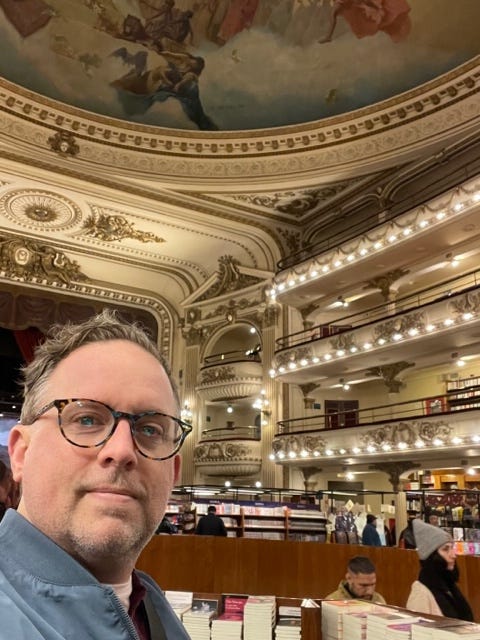
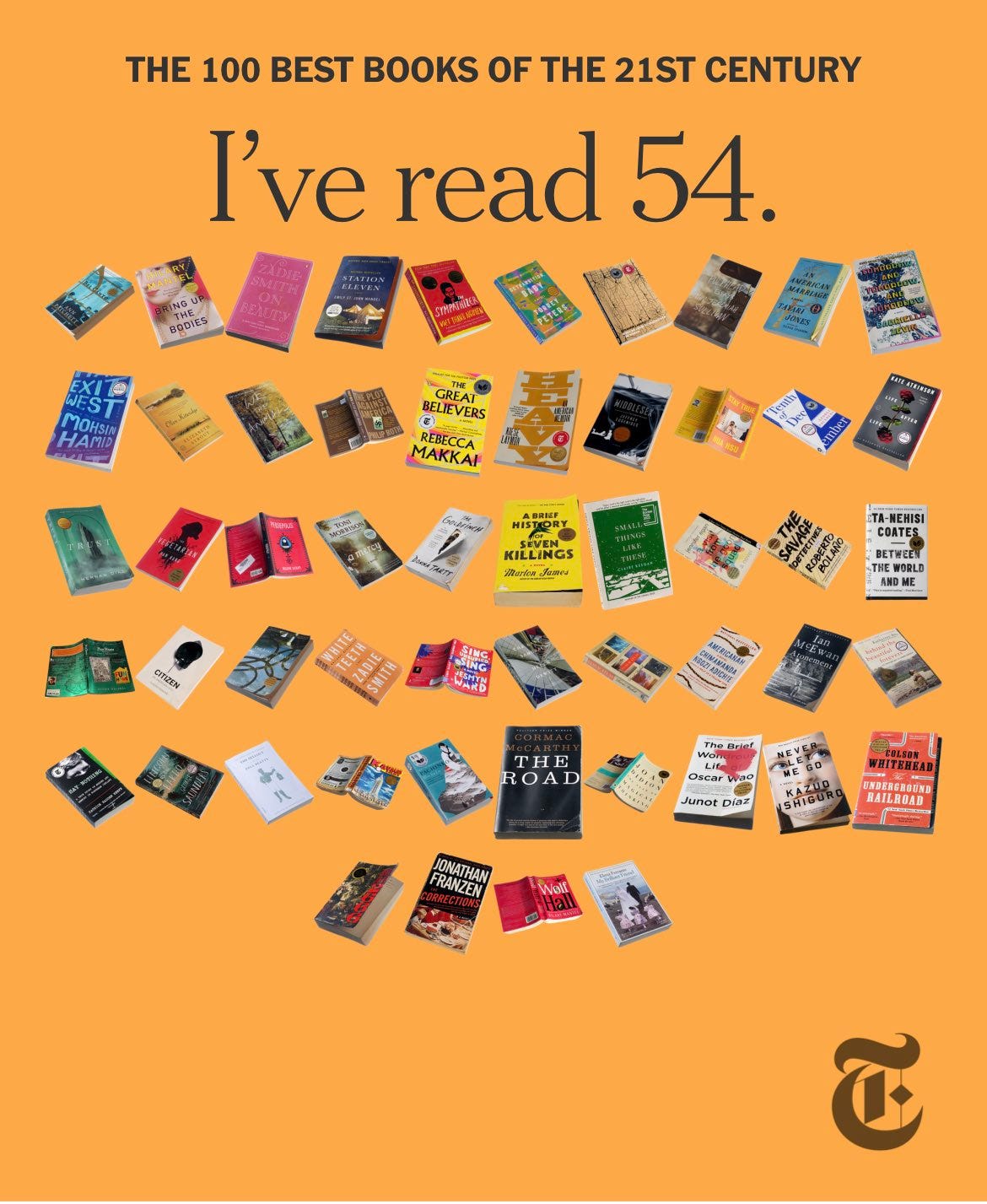


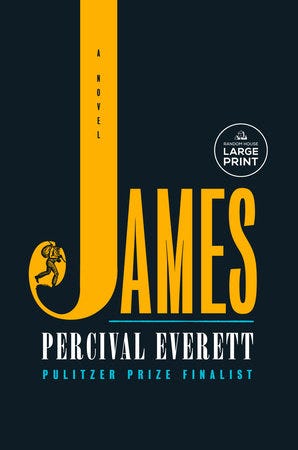
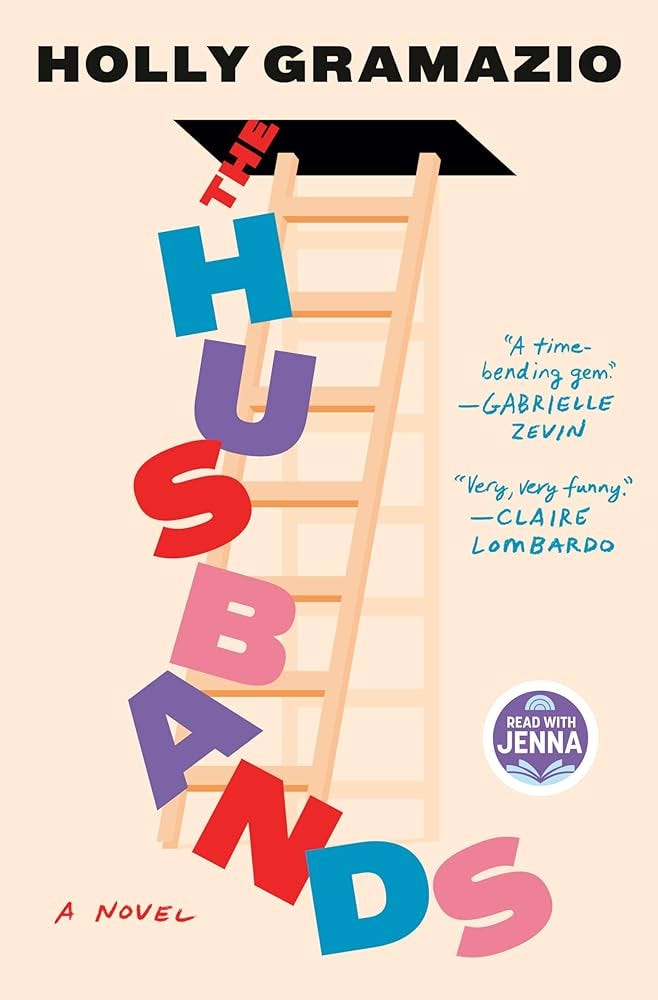
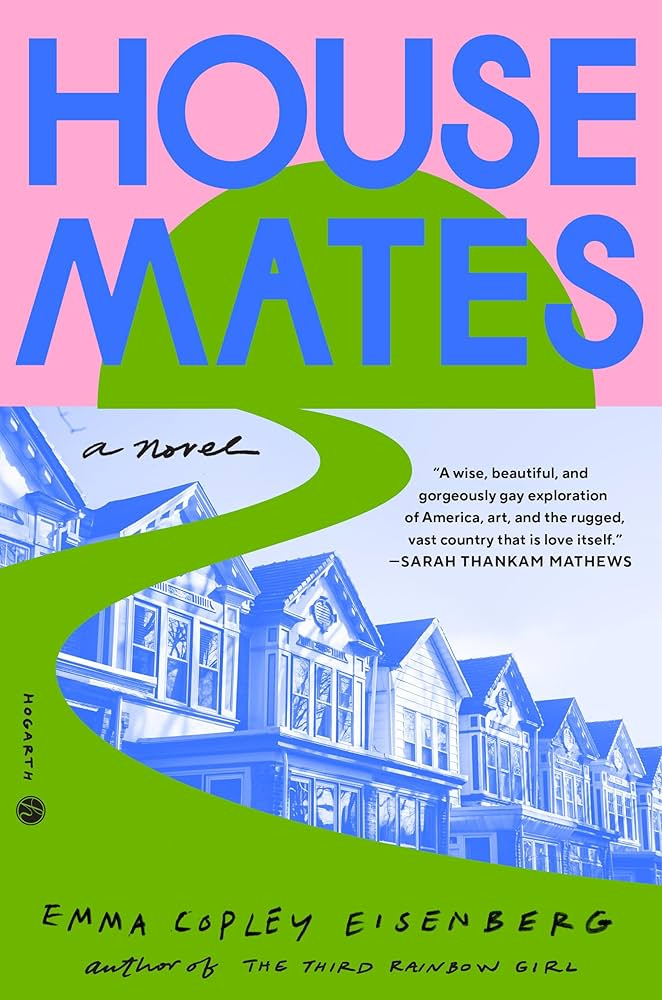
This is one version of the list I would submit. Much like any given Sunday, I feel like my selections could change a few months or a year from now. Even with my Goodreads tracker, it was tough to recall the full catalogue of 21st century books that I've read. All of these are books that would enthusiastically read a second (or third) time.
The Great Believers by Rebecca Makkai
Salvage the Bones by Jesmyn Ward
Bad Blood by John Carreyrou
Memorial by Bryan Washington
The Yellow House by Sarah M. Broom
All the Light We Cannot See by Anthony Doerr
Pachinko by Min Jin Lee
Edinburgh by Alexander Chee
Red, White, and Royal Blue by Casey McQuiston
James by Percival Everett